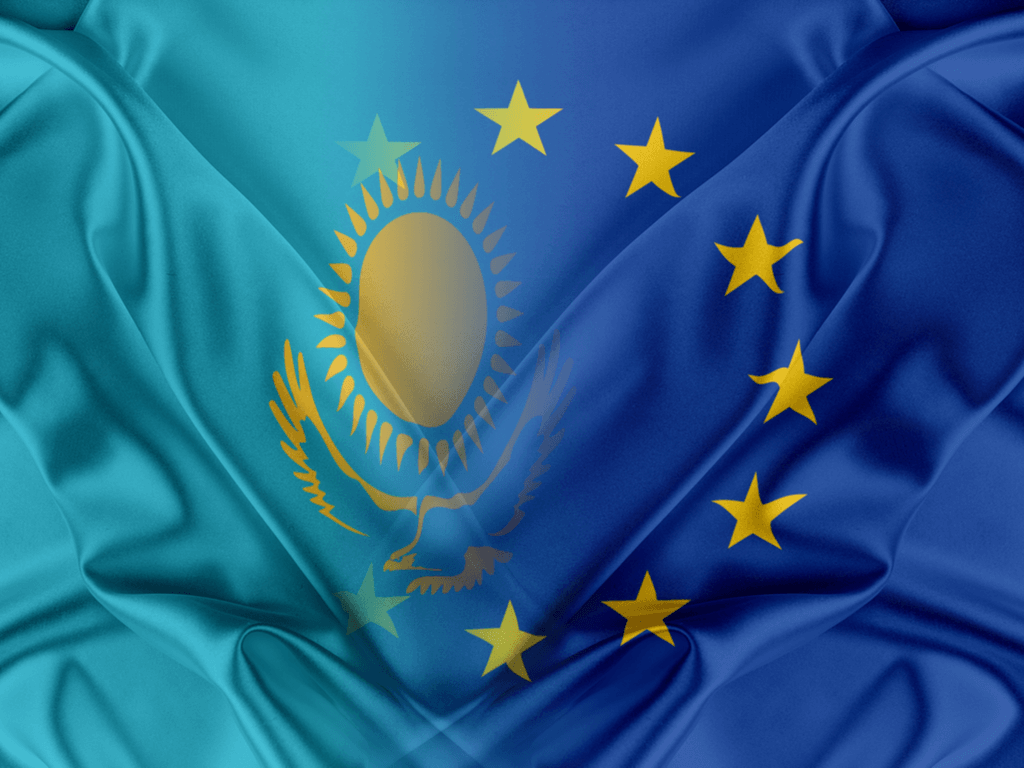The 16th meeting of the Kazakhstan-EU Cooperation Council was held in Brussels on February 26. The meeting was chaired by Kairat Abdrakhmanov, Foreign Affairs Minister of Kazakhstan. The EU was represented by Ekaterina Zaharieva, Deputy Prime Minister for judicial reform and Minister of Foreign Affairs of Bulgaria, currently holding the Council presidency.
The Cooperation Council welcomed the successful implementation of the Enhanced Partnership and Cooperation Agreement between the EU and Kazakhstan. It covers areas such as trade and customs, environment and climate change, energy and green economy as well as rule of law and judicial cooperation. The Cooperation Council confirmed the mutual interest of the EU and Kazakhstan in consolidating the relationship and cooperation, in particular in ensuring regional stability and development, the EU said.
The Cooperation Council also discussed political, judicial and economic reforms and trade and economic relations, topics that are of importance to both parties. The meeting addressed the issues of good governance, human rights protection and civil society cooperation. It also underlined that legitimate security measures necessary for fighting terrorism must respect individual rights and freedoms.
The Cooperation Council welcomed recent positive developments in the Central Asian regional cooperation. The EU announced that a new EU Strategy for Central Asia should be adopted in 2019, notably to take into account the changing political and socio-economic regional environment. Regional security aspects were also discussed in relation to Afghanistan, including border management, counter-terrorism and the fight against drug trafficking.
“The implementation of the Enhanced Partnership and Cooperation Agreement’s (EPCA) full potential corresponds to Kazakhstan’s interests as the document will facilitate the effective implementation of the comprehensive modernization strategy pursued by President Nursultan Nazarbayev,” the Kazakh Foreign Minister said.
The European Union is Kazakhstan’s largest trade and investment partner, accounting for about half of the country’s foreign trade and direct investments. The volume of trade between Kazakhstan and the EU increased by 25% in 2017 over the previous year, amounting to about $30 billion, according to the Kazakh Foreign Ministry.
As stated by the Kazakh side, the implementation of the new Agreement will let increase trade volume significantly firstly by high-tech products, and generate new opportunities for economic growth and job creation.
“In turn, the strengthening of trade and economic ties is inextricably linked with the free movement of citizens. In this regard, starting negotiations on facilitating the visa regime as soon as possible has become an objective necessity,” Minister Abdrakhmanov said. He expressed the hope that negotiations on visa facilitation will start this year.
The Enhanced Partnership and Cooperation Agreement (EPCA) between the EU and Kazakhstan was signed on 21 December 2015 in Astana. Since 1 May 2016 the provisional implementation of the main articles of the Agreement has been launched. The Agreement provides significant boost to economic and political ties between the EU and Kazakhstan and also enhance concrete cooperation in 29 key policy areas, including in the sectors of economic and financial cooperation, energy, transport, environment and climate change, employment and social affairs, culture, education and research. During 1991-2014, to support Kazakhstan directly, the EU funded more than 350 projects for the total amount of EUR 180 million, which have been allocated to policy advice and technical assistance to various Ministries, Agencies and Committees of the Government of Kazakhstan.




